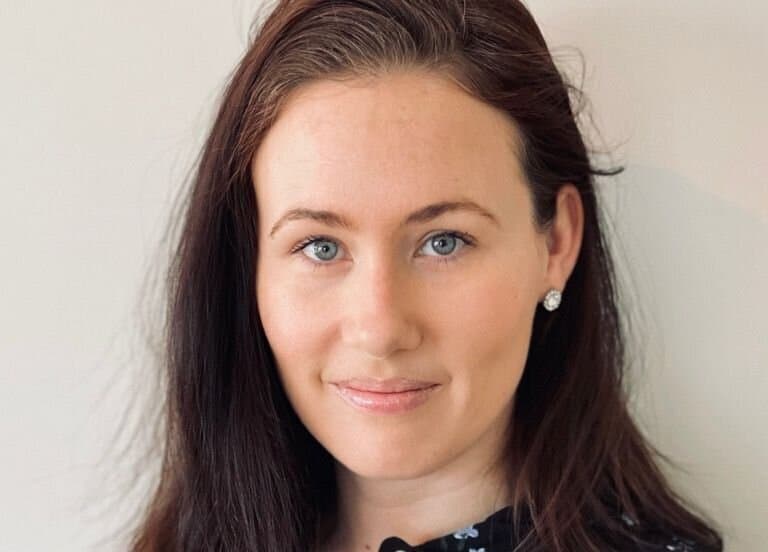Career expert: build a 'growth mindset' with these five simple steps
If you’re following an international career path, what are the key ingredients in your recipe for success? Not so long ago, it would have been all about your qualifications and past experience.

But if you still believe that, it could mean you have a fixed mindset rather than a growth mindset. That’s bad news if you want a dynamic career in the 2020s at an exciting startup – or any forward-thinking international company.
The Local has partnered with fintech company Zimpler to examine just how you can cultivate a growth mindset to help you reach your full potential in the years ahead.
Growing versus getting stuck
Psychologist Professor Carol Dweck at Stanford University defined and explored the idea of growth mindsets and fixed mindsets in her book Mindset: The New Psychology of Success. She showed that how we think about our abilities can influence our success in work, sports, the arts, and other areas – and how those beliefs influence our behaviour.
Essentially, people with a fixed mindset believe abilities are carved in stone. Those with a growth mindset believe abilities can be developed – opening up countless new ways to flourish. Finding people with a growth mindset is crucial to the success of today's most exciting, forward-thinking companies, says Linda Höglund, Chief People Officer at Zimpler.
"What's interesting in scaleups or startups is that if we don't have these people with a growth mindset, we won't be able to progress as we want to," she says. "We hire people who we believe have the right values. That means that if we find a great candidate with those values but we don’t have a position for them, we create one."
To help you find your dream job, here are five steps you can follow to develop a growth mindset.
1. Proactively look for problems
Nobody likes problems. Or do they? The fact is we can’t avoid them in work or in life. Trying to avoid them, rather than confronting them, may just make things worse.
You’ve probably heard how Kodak invented the digital camera only to bury its own idea out of fear (and later went bankrupt). If you have a fixed mindset, you probably see taking on new challenges as risky – you could fail and your cherished abilities may be called into question.
Contrast this with the problem-solving attitude of Elon Musk: YouTube is full of videos where he describes staying overnight and sleeping on the Tesla factory floor or in a conference room to help find solutions when the company was at risk of failure. Research has found that leaders who take businesses to great success tend to ask questions and actively look for failures or weaknesses. Scared to even raise that perplexing work problem? Get out of your fixed mindset!
2. Know that power lies in improving things
Identifying problems is only the first step, of course. You’re only looking for problems because you want to make progress by being a problem-solver!
In the right culture, power lies not in claiming all the credit or undermining other people to feel strong, but in a relentless focus on improving all that you can (including yourself!). How do you identify such stars in the making? In addition to being growth-minded, Höglund says the key ingredients to look for in a new hire are energy, ideas and personality, rather than putting experience first.
“A problem-solver with a fresh background will help us look at a challenge in a new way and through that our chances of innovation vastly increase,” she adds.
 Photo: Getty Images
Photo: Getty Images3. Think beyond your job description
In a world where entrepreneurs and startups can go from unknowns to industry powerhouses at dizzying speed, change is a given. If you want a dynamic career, you may also need to embrace uncertainty in your day-to-day role. The way in which you can provide the most value today might change tomorrow.
“Working in a startup or fintech company where things move quickly requires a certain way of thinking and expecting change,” says Zimpler's Höglund. “In our world, you must want to challenge yourself, so you must have a growth mindset. If you want to stick with a routine of ‘one, two, three, four, five’ because that’s your job description, it just won’t work.”
4. Remember, skills are learnable
People with fixed mindsets are very sure about who they are and what they’re good at. Too sure, in fact. Eventually, they’ll find that time and their industry moved on but they didn’t. To avoid this trap, ask yourself what you can learn from other team members. How could you give and receive feedback in a way that promotes joint learning?
It’s also worth knowing that Professor Dweck says entire organisations can also exhibit either growth or fixed mindsets. More and more companies are interested in lifelong learning. To retain the best talent, they must enable employees to learn new skills rather than remain static. And at companies where learning is in the DNA, the hunger for lifelong learning starts with managers and permeates the working culture.
5. Don’t limit your own potential!
According to Dweck, a person’s true potential is “unknowable” since it’s impossible to foresee “what can be accomplished with years of passion, toil and training”. Forward-looking employers today are shaking up how they find – and retain – employees to help people maximise their potential. Tired talk of recruitment is being replaced with ‘talent acquisition’, and some companies have introduced radical approaches to interviewing.
At Zimpler, which is rapidly gaining new talent as it expands internationally, ambassadors carry out ‘values’ interviews with candidates before they can move forward to a more conventional interview. “By digging into their values, we learn what they’re passionate about,” says Höglund. “It can turn up things that people wouldn’t be brave enough to say in a more traditional interview.”
Some candidates – with great ideas, personality and potential – end up having a job created especially for them. By the end of 2021, Zimpler aims to have open applications on LinkedIn, so anyone can submit their CV and the company can choose how to match them with job openings.
"We feel it’s important to let the perfect candidate tell us what they can do, meaning it's up to us to then create the job that suits just that," says Höglund. While people living abroad sometimes feel they "can't be too picky" about jobs, believe in your ability to shine in the right environment, she adds. “It’s about self-reflection and being brave enough to try new things and put yourself out there. That’s the key to everything in life.”
This content was paid for by an advertiser and produced by The Local's Creative Studio.

Join the conversation in our comments section below. Share your own views and experience and if you have a question or suggestion for our journalists then email us at [email protected].
Please keep comments civil, constructive and on topic – and make sure to read our terms of use before getting involved.
Please log in here to leave a comment.